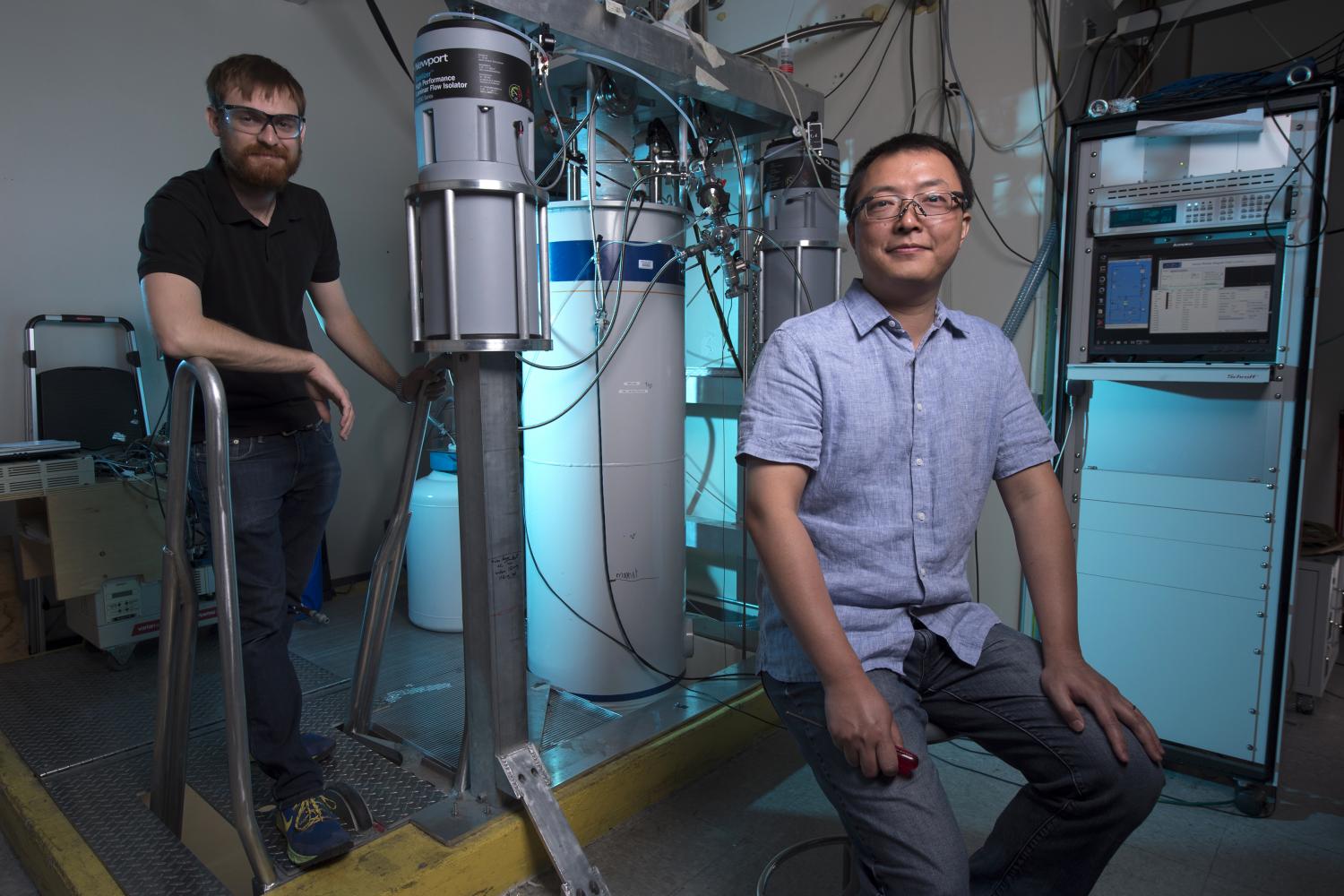Physicists at the University of California, Irvine and elsewhere have fabricated new two-dimensional quantum materials with breakthrough electrical and magnetic attributes that could make them building blocks of future quantum computers and other advanced electronics.
In three separate studies appearing this month in Nature, Science Advances and Nature Materials, UCI researchers and colleagues from UC Berkeley, Lawrence Berkeley National Laboratory, Princeton University, Fudan University and the University of Maryland explored the physics behind the 2-D states of novel materials and determined they could push computers to new heights of speed and power.
The common threads running through the papers are that the research is conducted at extremely cold temperatures and that the signal carriers in all three studies are not electrons — as with traditional silicon-based technologies — but Dirac or Majorana fermions, particles without mass that move at nearly the speed of light.
